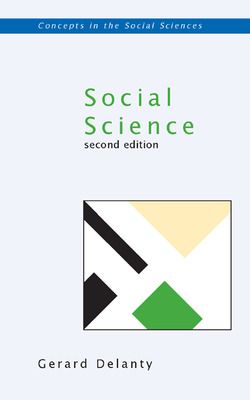Social Science
Receive via shipping:
- Colour, print bound version of the complete text
1. Positivism, Science and the Politics of Knowledge
2. Hermeneutics and Interpretation: The Search for Meaning
3. The Dialectical Imagination: Marxism, Critique and Emancipation
4. Communication and Pragmatism: Habermas, Apel and the Renewal of Critical Social Science
5. Deconstructionism and Postmodernism: Implications of the Cultural Turn
6. Return of the Actor: The Reflexive Turn and Feminist Standpoint Epistemology
7. Constructivism and Realism
8. Social Science and Public Discourse
Bibliography
- What is social science?
- Does social scientific knowledge differ from other kinds of knowledge, such as the natural sciences and common sense?
- What is the relation between method and knowledge?
This concise and accessible book provides a critical discussion and comprehensive overview of the major philosophical debates on the methodological foundations of the social sciences. From its origins in the sixteenth century when a new system of knowledge was created around the idea of modernity, the author shows how the philosophy of social science developed as a reflection on some of the central questions in modernity. Visions of modernity have been reflected in the self-understanding of the social sciences. From the positivist dispute on explanation vs. understanding to controversies about standpoint to debates about constructivism and realism, Delanty outlines the major shifts in the philosophy of social science. He argues that social science is an intellectual framework for the transformation of the social world.
The new edition is updated and expanded throughout with the latest developments in the field, including a new chapter on feminist standpoint epistemology, and additional material on neo-positivism, pragmatism, and reflexivity.
This is one of the most ambitious and wide-ranging texts in recent years on debates on method and the contemporary situation of social science. It is of interest to undergraduate students and postgraduates as well as to professional researchers with an interest in the philosophy of the social sciences and social theory.

